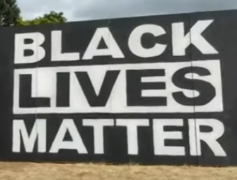Can Black Lives Matter change philanthropy? This is the main question asked by a Huffington Post article author on the new social justice bent of foundation donations:
The Black Lives Matter Movement (BLM), a decentralized and well-organized network of young men, women, immigrants and queer activists who aspire to end systemic discrimination, has attracted serious attention and, more recently, dollars from US foundations. Interestingly, BLM has also succeeded in forcing well-established funders to rethink assumptions about what constitutes effective organizational models. This marks a notable and laudable shift from small episodic grantmaking to longer-term investments supporting a movement-building process via a flexible giving model.
So far, Black Lives Matter has attracted funding from the corner of American philanthropy often called “social justice philanthropy” (SJP, to insiders). Though there is no official definition for SJP, NCRP defines it as “contributions to nonprofits who are working for structural change to increase opportunity for those marginalized politically, economically, and socially.” SJP often supports organizations which, like Black Lives Matter, seek to upend the status quo, often by using a mix of advocacy, organizing and civic engagement. The Ford Foundation, Borealis Philanthropy, and Open Society Foundations are widely considered social justice funders and they all support Black Lives Matter.







